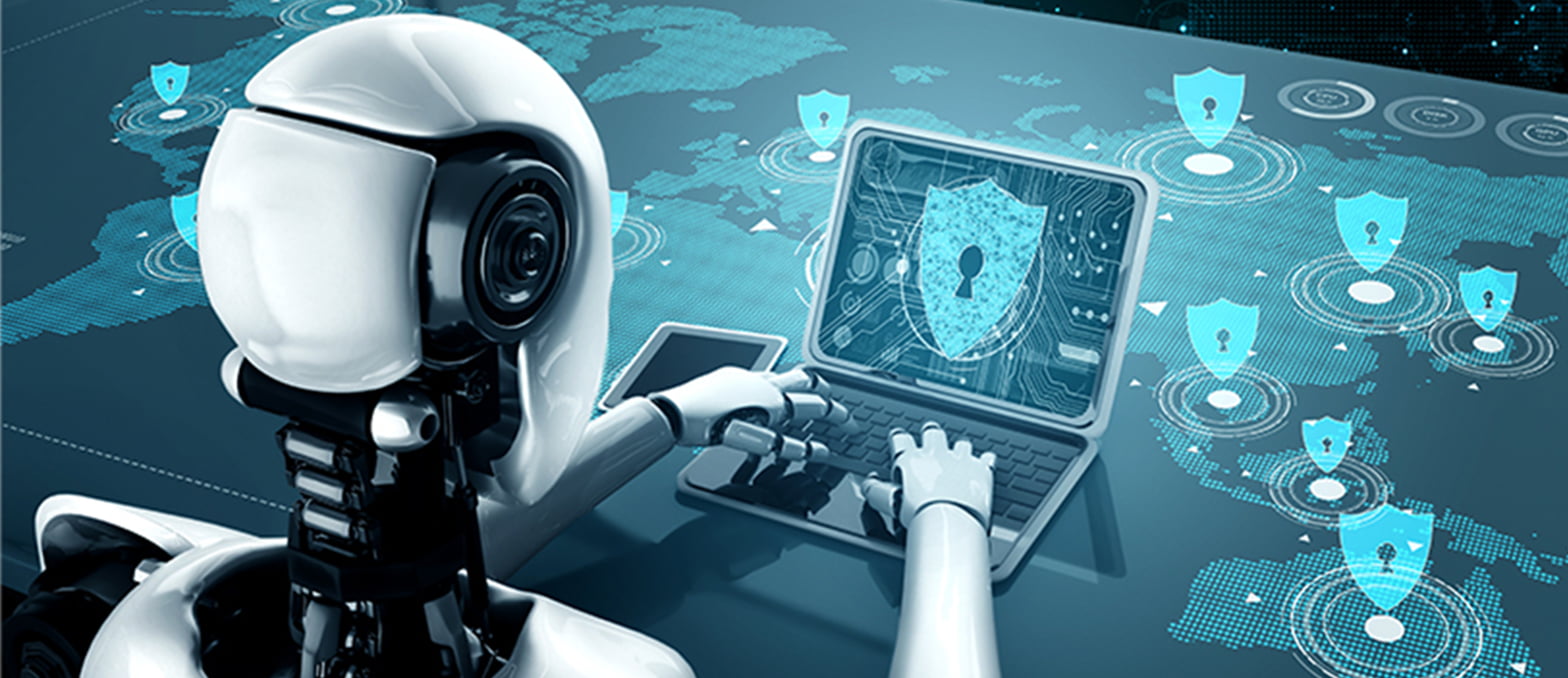Table of Contents
The COVID-19 epidemic and the rise of digital technology have forced many students and teachers worldwide to shift to online education. Online learning sounded strange and impossible to implement a few years back, but not now. Generative AI in education is transforming the industry vertical, assisting students in developing the necessary skills and maximizing their potential. Schools, colleges, and other educational institutions increasingly use AI technology to provide personalized learning to their students.
We live in an era where education and technology are interwoven closer and closer every day. The use of generative AI in education and learning composes this entire chapter. Based on the deepest levels of neural networks and the sheer volume of data, generative AI appears not as a tool but a pioneer for education.
Generative AI is capable of introducing applications that could change the educational process. Initially, it can create personalized learning materials and facilitate learning experiences, but in today’s time, its capabilities are numerous. It would be right to say that generative AI is the technology that opens new possibilities for teaching, learning, and interactions with educational content.
In this blog, we will explore the top generative use cases of AI in education and its benefits.
Must Know Statistics About Generative AI in the Education Industry
Generative AI tools have transformed the education sector around the world. They have surprised educators with their ability to enhance learning, transform teaching methods, and provide instant feedback. It provides teachers with the latest tools and knowledge, leading to more effective and engaging learning spaces.
- AI tools to aid teachers and assist students are rapidly increasing. According to Forbes, 60% of educators use AI in their classrooms.
- The global Generative AI in the Edtech Market is estimated to reach about $8,324 million by 2033. It is projected to expand at a CAGR of 41% from 2024 to 2033.
- Educational-related AI is predicted to be the largest market in the world at $6 billion in 2025. While it continues developing its applications for education, it goes beyond writing tutoring and providing support to students.
- AI in the corporate learning segment is expected to have 15% of the market by 2032.
- According to Morgan Stanley, reskilling and retraining in the education sector could require approximately $6 billion in investment before 2025. In the meantime, tech businesses are poised to fill the gap.
Top 20 Use Cases Of Gen AI In Education
AI is redefining how students learn, teachers teach, and schools operate. The most notable generative AI applications in education are:
Customized Learning Pathways
AI-powered tools collect and analyze student information on assignments and exercises completed, learning materials, performance, and test results to better understand students’ needs and preferences. A reputable generative AI development company can help you design and adapt custom training paths according to the student’s progress.
Suppose an AI-powered system detects that a person learning Spanish is struggling and needs help. In that case, it will create customized writing, listening, or talking exercises and give immediate feedback upon completion. The system also provides information in various styles to accommodate various learning styles and preferences.
Learning Content Creation
Generative AI helps create innovative teaching tools, including quizzes, exercises, summaries, and explanations of concepts. This is particularly useful for teachers who develop a huge amount of content and various types of content to use in their classes. With the help of AI technology, you can make new or altered material from existing content.
Furthermore, AI can generate scripts to create podcasts and video lectures, streamlining the creation of multimedia content for online learning courses. Image generation is another significant feature of generative AI that aids in education. Teachers might want to create images that meet the particular needs of their classes to help students better understand the topic.
Learning Outcomes Prediction
Machine learning solutions will process past data about students’ academic results and aptitude levels and divide them into various archetypes. ML algorithms can analyze and discover connections between the different types of learners and their expected educational outcomes.
Teachers can use this feature to select the most effective teaching techniques and programs for their students’ requirements and abilities. It’s also a vital tool for schools that can utilize predictive analytics to identify students at risk of getting low marks or failing exams and assist them in preventing problems before they become out of control.
Gen AI Assistance During Learning
Utilizing natural language processing in conjunction with ML-driven adaptive learning creates smart virtual assistants that can be useful for both students and teachers. AI-powered bots are available 24*7 to give students help and support when a query arises and help students stay on track with their academics. The best part is that virtual assistants will not judge students. They will aid them with their tests and help them feel less anxious about making mistakes that students often make before their peers and teachers.
Instant Feedback And Support
In line with the current trend towards personalized learning, the use of AI for immediate feedback and assistance can be equally transformational. Platforms that use AI for grading and assignments instantly provide students with immediate, concrete information about their performance. Instant feedback is crucial in helping students understand and rectify their errors quickly.
For specialized fields like programming, such as coding, AI can analyze and give real-time feedback to the students’ written codes. This accelerates learning processes and boosts students’ confidence and ability to master new techniques. Particularly in remote learning environments where teacher-student interaction in person is less common, AI-powered quick feedback is crucial for maintaining student involvement and ensuring that they are engaged and learning continuously.
Insights from Data Analysis For Teachers
Gen AI in education helps gather important information about how employees and students acquire knowledge during the course. These findings are primarily beneficial for teachers in discovering trends and areas of the learning process, which are essential in developing and improving curriculum. Generative AI for learning analyzes students’ results, providing teachers with an understanding of students’ learning habits and class requirements.
For example, AI systems can examine student behavior in maths to find frequent challenges and help instructors solve them. AI-based apps for language learning employ AI to measure improvement in vocabulary and grammar by providing information to help refine teaching methods.
AI-Powered Tutoring
Another use case of generative AI in education is tutoring. Generative AI could be utilized to build virtual tutoring spaces where students communicate with virtual tutors. This is particularly beneficial for students who can’t access tutoring in person. Providing tutoring for all students isn’t easy. Generative AI can tackle the issue by developing virtual tutoring platforms. Within these virtual tutoring environments, students can communicate with tutors in virtual form and receive support and feedback anytime.
Gen AI-Powered Virtual Classrooms
Virtual reality is revolutionizing education by creating immersive, dynamic student learning experiences. GenAI is compatible with AR/VR equipment to analyze students’ performance and enable personalized learning within virtual spaces. Analyzing and interpreting real-time 3D images creates realistic interactions between users and virtual reality.
Utilizing VR, students can take virtual field trips right from their classrooms to discover famous locations while also improving their knowledge about the world’s geography, history, and culture. Additionally, teachers can create lesson plans tailored to each student’s learning needs and preferences through GenAI-driven VR and AR technologies, resulting in customized and efficient learning experiences.
AI-Generated Educational Games
Educational games are an excellent method for learning through playing. Self-learning AI can be a powerful option for modifying these games. AI creates games that can adapt to a student’s abilities and increase sophistication as a student advances. These innovative, AI-generated educational games improve learning and help make learning more accessible. They are customizable for various learning difficulties and can meet the needs of different educational levels, ensuring that every student has access to engaging, high-quality, and efficient learning tools.
Utilizing AI to create dynamic media often includes elements of gamification. This is proven to improve students’ motivation and engagement. Leaderboards, achievements, and scoring can encourage positive competition, create an appreciation of achievement, and enhance the educational process.
Data Privacy Protection For Analytical Models
The benefit of generative AI in creating training data sets offers the ability to safeguard student privacy. An attack or data breach can reveal data like personal details, school names, and ages of students. The synthetic data created by AI models, trained from actual data, could ensure anonymity and safeguard students’ data. Data sets generated using genetic models can be practical and can be used to train other algorithms. They are also protected and safe for use.
Benefits Of Integrating Gen AI In Education
Generative AI could greatly benefit the education sector and transform how students learn, and teachers give lessons. There are many advantages of generative AI for the education industry, let’s have a look:
Improves Student Engagement
AI enhances learning experiences and improves student engagement in multiple ways. First, it helps create a strong relationship between students and academics by bringing out their curiosity and enthusiasm for the subject. Second, it fosters active involvement and engagement in the classroom. It leads to more engaging discussions and better information retention. Third, it increases co-learning among peers, helping to create an inclusive and supportive learning atmosphere.
Efficient Administrative Tasks
Effective administrative tasks can save time, allowing one to focus on other important tasks and increase overall efficiency. Streamlined processes greatly reduce the chance of errors and improve data accuracy and decision-making ability. Efficiency increases, resulting in quicker service and greater satisfaction. Furthermore, it helps create a positive environment for teachers and other employees of financial institutions by reducing their discontent and improving morale and satisfaction with work.
Instant Feedback And Assistance
AI-powered chatbots and virtual assistants give immediate feedback and support to students and encourage self-directed learning. They are accessible 24/7, allowing students to get assistance and increasing self-reliance and problem-solving ability. By responding instantaneously to questions and providing support, they decrease dependence on human support, empowering students to manage their learning.
Adaptive Learning
The benefits of adaptive learning are significant because it helps avoid stressful situations with its precisely designed rate and speed. It monitors students’ progress automatically and boosts motivation to continue education. Students can effectively monitor their skills development and program complexity through its flexible rhythm. The individualized method with flexible schedules and plans is highly efficient, especially for students struggling to keep up with schoolwork.
Data-Driven Insights
AI’s analysis of a wealth of information about students provides valuable insight into individual learning patterns and areas of improvement. The students can see the entire academic progress by looking at the scores of their tests, homework completion rates, and engagement indicators. This approach also allows teachers to modify their methods of teaching and curriculum materials and offer individualized support, ultimately enhancing the student’s learning experience.
Challenges Of Implementing Gen AI In Education
Implementing generative AI in the education sector encounters significant challenges. Financial institutions may have to deal with various issues like expensive starting costs, privacy and ethics issues, inadequate digital infrastructure, and many more. Let’s have a look at them:
Ethical And Privacy Concerns
Using student data could be a source of suspicion regarding conformity with privacy and ethical guidelines. Given the deep concern about fairness in education and protecting learners’ data, gen AI implementation should undergo rigorous processes to ensure an optimal outcome.
Inadequate Information
Word-of-mouth and social media are the most essential sources for AI literacy. Teachers can update details about GenAI within the context of education. A lack of workplace training or technology deficiencies reduces employees’ willingness to utilize AI for their jobs. Furthermore, staff members often are occupied with other tasks and do not have the time to research the benefits of using AI.
Limited Digital Infrastructure
The majority of educational institutions are finding it difficult to integrate the technology needed to enable smart AI models that are computationally intensive jobs. Additionally, teachers need to pay higher fees to access advanced features of the EdTech software paid version.
Lack Of Quality Training Data
Machine learning models usually depend on top-quality training data to generate reliable results. Getting extensive data sets accurately reflecting the learning material isn’t easy. Incorrect data in training can lead to the reproduction of untrue stereotypes. Overall, the more quality data we can gather in the AI integration process, the better results we expect.
How A3Logics Can Help You Integrating Gen AI In Your Organization
The digital revolution is affecting every industry, including education, and is undergoing a significant transformation. The effect of AI on education is measurable and unquestionable. Many companies are using AI’s advantages in the field of education to boost the learning experiences of students.
A few businesses utilize AI chatbots in education to offer students support 24/7 and assistance. At the same time, other companies use AI algorithms to recognize those who are struggling with learning and offer specifically targeted interventions. There are many possibilities. Therefore, you should consider integrating generative AI solutions into your teaching plan to enhance your education business. It’s a wise decision that can yield handsome returns over time.
A3Logics is a top-rated generative AI development company that offers profound insights into the field of education. We have long-standing experience in successfully implementing AI projects, and our knowledge and expertise allow us to develop innovative apps and AI-driven learning platforms. We develop innovative solutions that customize learning experiences, give insightful insights, and boost collaboration between students and teachers.
Conclusion
The introduction of Generative AI within the education sector allows for reinventing and improving teaching techniques. By focusing on developing capabilities in students and teachers, we can prepare them for a world in which AI has a crucial role in professional and personal areas. Using generative AI consulting, students can use AI technology and actively participate in creating a more digitally oriented society.
We anticipate even more thrilling educational advancements powered by generative AI, including increased personalized learning, seamless integration into learning management systems, and advanced gaming. The use of NLP-powered tools to learn languages will assist students in learning better. Integrating AI to enhance education with the help of generative AI consulting services will require adaptability, innovation, and creativity, empowering students to achieve their goals in a complex environment driven by technology.
FAQs
How is Generative AI being used in education?
AI in education has transformed the methods and nature of teaching and learning. It is the process of integrating AI technology, such as ML and NLP, into education systems to improve learning.
Here are some of the most significant use cases of generative AI in education:
- Closes the skill gap
- Virtual teaching assistants
- Planning and developing curriculum
- Interactive simulations
- Plagiarism detection, and many more.
Can Generative AI create personalized learning paths for students?
Yes, Gen AI can greatly help personalize students’ learning paths. AI’s ability to tailor the learning experience is determined by analyzing each student’s data, which includes variables such as learning styles and capabilities. After carefully analyzing this data, AI constructs customized learning pathways tailored to every student’s needs.
How does Generative AI assist in content creation for education?
Generative AI for education and learning gives you unique, customized content that caters to a variety of subjects and learning styles. For example, AI tools can create interactive quizzes and educational games that make education more fun for students. AI can also design diverse and culturally rich language games that replicate real-life interactions, which can help improve learning language.
Can Generative AI help with language learning?
AI improves language learning through instant grammar, pronunciation, and vocabulary feedback. The interactive feature helps learners improve their language skills with immediate advice and corrective feedback, creating an effective learning process. By simulating real-world conversational situations, AI makes language acquisition fun and valuable. AI adapts to each individual’s learning patterns and provides individualized help for every individual. AI revolutionizes language education by making it more engaging and easily accessible for learners from any level.
How is Generative AI used in creating educational games?
AI can help build educational and interactive games by creating exciting educational games. Using AI algorithms like NLP and machine learning, it’s possible to create games with a compelling storyline that are an effective method for learning by playing. AI can design games that adapt to the student’s abilities and increase in difficulty as a student grows.
What are the benefits of using Generative AI in education?
In the context of advancing generative AI technology, AI has great potential to create revolutionary changes in education. It has the potential to redefine learning and enhance educational outcomes in many ways. Generative AI will improve education in many ways. Some of them are:
- Personalized learning
- Automated grading
- Content creation
- Adaptive and interactive learning and much more.
How does Generative AI enhance student engagement?
AI can positively impact learning in multiple ways. AI encourages active involvement and participation within the classroom, leading to better discussions and knowledge retention. Particularly in remote learning environments where interaction with teachers in person is rare, AI-driven quick feedback is crucial for maintaining student engagement and providing ongoing, engaging learning. Increased engagement can lead to higher academic performance since learners are likely to spend time and energy on their studies if they’re genuinely engaged and interested in the learning process.








